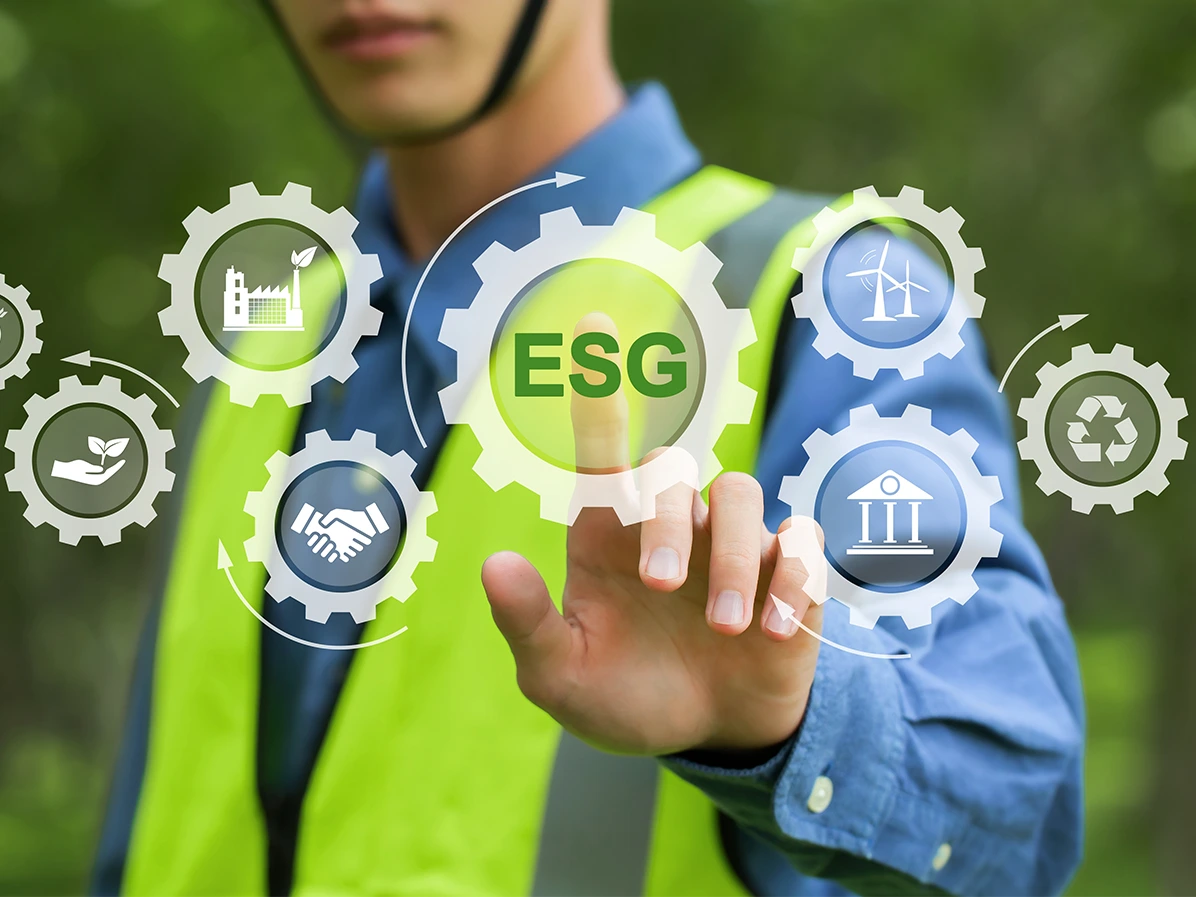Contents
Mastering ESG Compliance: Essential Standards for Businesses
29 March 2024 - Evotix
In a world where businesses can no longer overlook their impact on the environment, mastering Environmental, Social and Governance (ESG) compliance has become a paramount objective for organizations. The time has come to prioritize sustainability and ethical business practices, but how? This blog serves as a comprehensive guide to walk you through the crucial standards businesses need to adhere to in order to navigate the ESG landscape successfully.
Understanding ESG compliance
First things first, to become ESG compliant, you and your organization must have an excellent understanding of what ESG entails. ESG compliance encompasses a set of standards that gauge a company’s commitment to environmental sustainability, social responsibility and effective governance. As stakeholders and customers demand greater transparency, businesses must not only understand but also master these standards to contribute to a more responsible global economy.
ESG regulations can be notoriously difficult to navigate; demands are ever-changing and organizational efforts at compliance are frequently disjointed. For best results, organizations should aim to stay on top of regulations and invest in technology and expertise wherever possible.
Environmental standards
Carbon footprint reduction
Reducing carbon emissions is a cornerstone of ESG compliance. Businesses need to implement strategies to minimize their carbon footprint, whether through energy-efficient practices, sustainable supply chain management or the adoption of renewable energy sources.
Resource efficiency
Reducing waste is an excellent way of offsetting your environmental mark. Efficient use of resources such as water and raw materials is essential, which can be achieved by implementing practices that minimize waste, promote recycling and contribute to a circular economy.
Social responsibility standards
Diversity and inclusion
Promoting diversity and inclusion within the workplace is a vital aspect of ESG compliance. Companies should foster environments that embrace individuals of diverse backgrounds, cultures and perspectives.
Labor practices
Fair and ethical labor practices are non-negotiable. If you want to become an ESG compliant business, your organization must prioritize fair wages, safe working conditions and adherence to labor laws. Maintaining robust workplace safety ESG compliance is vital for staying within regulation; for this, you must stay on top of health and safety audits.
Governance Standards
Ethical leadership
Everything begins and ends with leadership. To be an overall ethical organization, your leadership must demonstrate integrity, transparency and accountability at all levels of management to meet ESG standards.
Board diversity
Having a diverse and independent board is crucial for effective governance and will help realize other elements of ESG compliance. ESG regulation requires companies to establish boards that bring varied expertise, perspectives and experiences to the decision-making process.
Integrating ESG into corporate strategy
ESG reporting
With transparency emerging as a key requirement for stakeholders, businesses should regularly disclose relevant information regarding their environmental, social and governance practices to stakeholders, promoting accountability and trust. This also means remaining transparent about environmental targets, progress and achievements.
Stakeholder engagement
Engaging with stakeholders, including employees, customers and the broader community is a fundamental element of ESG compliance. Demonstrate to consumers and stakeholders that you are committed to sustainable and ethical practices by seeking feedback and addressing concerns.
You too can master ESG compliance
Mastering ESG compliance is more than just a checkbox exercise, which is why it may seem extra tricky. With regulatory scrutiny growing higher and the ever-present risk of greenwashing looming over companies, the journey to ESG compliance requires a more holistic approach.
Businesses need to integrate environmental sustainability, social responsibility and effective governance into their core values and operations. By setting measurable goals, regularly monitoring performance and adapting strategies as needed, organizations can not only meet ESG standards but also thrive in a future where responsible business practices are the norm.
So as ESG considerations continue to shape the business landscape, companies that master these essential standards position themselves as leaders in sustainable and responsible business practices. Embrace ESG compliance as a strategic imperative and as a contribution to a brighter future where businesses prioritize people, the planet and ethical governance across the globe.
If you need more guidance on ESG, read our blog Mastering ESG Metrics: A Comprehensive Guide for Businesses or reach out to us - we are more than happy to help!
RELATED BLOGS

Designing a Robust ESG Strategy for Long-Term Success
14 March 2024 - Evotix
ESG refers to environmental, social and governance criteria, assessing environmental impact, social responsibilities like workplace diversity, and governance structures such as transparency. It acts..

Sustainable Business Models: ESG Innovations for the Future
25 April 2024 - Evotix
Sustainability has made the transition from a simple buzzword to a fundamental aspect of every company's business strategy. Organizations can no longer afford to ignore sustainability or approach the..

3 Reasons Why Businesses Should Care About ESG
8 December 2022 - Evotix
Leaders from around the world recently came together at the 2022 Climate Change Conference (a.k.a COP27) to update goals that tackle the challenge of climate change. The output will see many..
